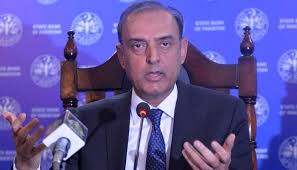Islamabad, Aug 8: According to Jameel Ahmad, the governor of the State Bank of Pakistan (SBP), Pakistan has $26.2 billion in outstanding debt as of the end of FY25. Friendly nations will transfer over $16 billion, with $10 billion remaining to be reimbursed by June 30 of the following year. $1.5 billion was paid by the central bank last month, leaving $8.5 billion for the fiscal year to go. SBP paid $12.5 billion in FY24, although the nation owed $130 billion in foreign debt.
At a meeting of the National Assembly Standing Committee on Finance and Revenue, which was presided over by MNA Naveed Qamar, he made this statement. Jameel also cautioned that tight budgetary controls would probably drive up inflation, but he expressed optimism that friendly country debt rollovers would keep the external sector under control this fiscal year.
Secretary of Finance Imdad Ullah Bosal informed the committee, “Pakistan will receive its first IMF tranche following a $4.4 billion rollover of Chinese commercial loans,” alongside the governor of the State Bank of Pakistan. Additionally, the UAE and Saudi Arabia agreed to extend debt rollovers by a year for the government. The governor of SBP announced that these nations’ deposits totaling $12.3 billion would be carried over into the current fiscal year.
He claimed that controlling domestic inflation is still very difficult and predicted that it will increase to 13.5% as a result of financial constraints and rising energy costs. He issued a warning that possible crises in the Middle East and growing wheat prices could make inflation worse. Next fiscal year, he predicted, would see a stabilization of inflation rates between 5 and 7 percent.
By the end of this fiscal year, he added, foreign exchange reserves might rise to $13 billion. In addition, the governor unveiled a five-year strategy to achieve financial stability and transparency, manage the current account deficit, and keep adequate foreign exchange reserves in order to sustain the economy.
The governor placed emphasis on growing domestic exports by ten to fifteen percent. Additionally, he discussed initiatives to stop dollar and Hundi smuggling and narrow the difference between open market and interbank dollar exchange rates. Despite the high interest rates needed to contain inflation, the governor was hopeful that the policy rate would decrease as the economy stabilized.
